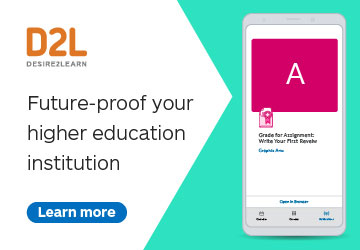
Source:
iStock

As the coronavirus outbreak forces more teaching online, the region is uniquely placed to utilise new tools and micro-credentials to improve access and employability
Universities in Australia and New Zealand have been investing in digital learning for some time, but in the past two years, major changes have been happening, says Tony Maguire, ANZ regional director of learning management software provider D2L.
There is a heightened awareness of the importance of student experience, and universities’ adoption of new digital solutions is now driven by what Maguire calls vice-chancellors’ “large transformational visions”.
For those universities not already undergoing a digital transformation when Covid-19 forced campuses to close, Maguire says “anything that decreases academic burden, lowers the fear factor as universities quickly had to pivot to a remote model, and provides students with a more simplified view of their life is really important.”
As D2L helps universities in Australia and New Zealand onboard digital learning, Maguire says that “simplicity and lower effort to entry” is key. That means helping universities quickly repurpose content from their legacy systems with their new system, and providing tools to ensure that the student experience is “equitable” whether students are in the lecture theatre or online.
“Their virtual experience of that, through polling, access to content, curated case studies and so on, will be the same,” he says.
As digital learning has become a requirement, more and more institutions have found that a sub-par virtual learning experience can deter students.
Students also want to see a “very specific, explicit link between doing the course, industry accreditation and a job”, Maguire says. Courses co-authored with businesses, supported by industry placements and practical mentoring from non-academic experts, have proved popular.
The emergence of micro-credentials in Australia have enabled students to take short, blended courses for a few hundred dollars that can stand alone or “stack” into a larger qualification. Students can now, for example, obtain a master’s for about half the usual cost, in less time and in a way that fits around their working hours.
Maguire believes that in future, more students will be learning online while working. He anticipates that internships and research placements will increase, as students “learn and earn”. This model also offers value for businesses, not least through research relevant to their interests.
Blended learning will also enable those already in employment to upskill, too. “There is a very clear need – and significantly growing demand quarter-on-quarter – for professional learners who have disposable income but they don't have the disposable time, nor are they close enough to universities [to sit a traditional course],” he concludes.
Tony Maguire will lead the session “Short courses, blended learning and reskilling adult learners: how to respond to Covid-19” at THE Live ANZ 2020. Register for free.











